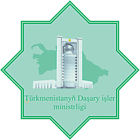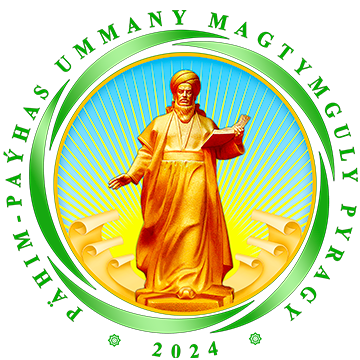Magtymguly Fragi»




In honor of the 25th anniversary of the permanent Neutrality of Turkmenistan, on December 12, 2020, a plenary session was held at the Institute of telecommunications and informatics of Turkmenistan on the topic "Development of multimodal transport corridors and reliable infrastructure as a factor of sustainable development."
The event focused on the development of transport relations between countries and regions, which is especially important in the current world situation.
The meeting was attended by heads and representatives of regional and international structures actively promoting multilateral cooperation in the field of transport. Among the participants, the heads and representatives of the UN Economic and Social Commission for Asia and the Pacific (ESCAP), the International Road Transport Union and of others.
Participants heard video messages of the Executive Secretary of the United Nations Economic and Social Commission for Asia and the Pacific (ESCAP) Armida Salsia Alishakhban, Secretary General of the International Road Transport Union (IRU) Umberto de Pretto, Regional Coordinator for Central Asia of the United Nations Conference on Trade and Development (UNCTAD) Dmitry Godunov and others.
As is known, transport diplomacy is one of the key vectors of the foreign policy of Turkmenistan in the light of modern realities.
During the session, the importance of the initiatives formulated by the President of Turkmenistan on the creation of international transport corridors of regional and continental importance was emphasized. Large international transport projects are being implemented with the participation of Turkmenistan, including the Lapis-Lazuli Corridor. Achievements and successful implementation of international projects are largely due to the neutrality of Turkmenistan.
As Umberto de Pretto stated, Neutral Turkmenistan makes a significant contribution to the development of international cooperation in the transport sector and in the formation of modern infrastructure, which is one of the integral factors of global sustainable development and economic integration. He also noted that Turkmenistan, being in the center of the Silk Road, is an important economic link between east and west.
The importance of the Kazakhstan-Turkmenistan-Iran, Serhetabat-Turgundy, Kerki-Imamnazar-Akina railways, the construction of the Turkmenistan-Afghanistan-Tajikistan railway, as well as high-speed highways, bridges, modern airports and seaports in strengthening of effective relations between Turkmenistan and countries of the region was emphasized.